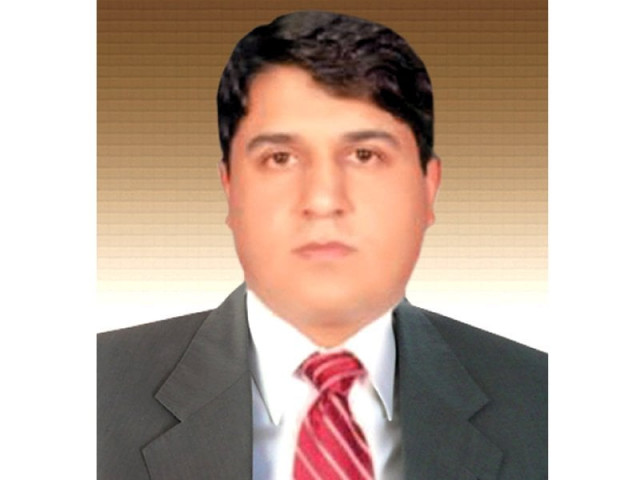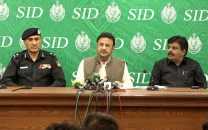Autopsy report: NAB officer’s death ruled a suicide as family cries foul
Medical board’s findings deal a blow to the deceased family’s demands for a judicial inquiry.

Faisal, who held the position of assistant director at the bureau, was found hanging from the ceiling fan in his room at the federal lodge number 2. PHOTO: FILE
The death of a case officer investigating a business scandal involving the prime minister has officially been ruled a suicide – nearly drowning out the deceased’s family’s appeal for a judicial inquiry into what they allege is a case of torture and murder.
National Accountability Bureau (NAB) official Kamran Faisal – who was looking into alleged kickbacks by the premier in transactions involving rental power plants – was found hanging from the ceiling of a government hostel room on Friday.
His death came 24 hours after the NAB chief told the Supreme Court that it did not have enough evidence to arrest Prime Minister Raja Pervaiz Ashraf, as directed by the court last week.
A five-member medical board, which conducted the autopsy, and the Secretariat police said that the NAB officer’s death was an apparent case of suicide and refuted claims that any torture marks were found on his body. The medical examiners unanimously agreed that Faisal was “strangled to death” and the police said they had so far not found circumstantial evidence to suspect otherwise.
The NAB assistant director’s burial took place in his native town of Mian Channu on Saturday, where his father Abdul Hameed held out his son’s wrists before television cameras to show what he said were “marks of ropes”. “Who commits suicide with his hands tied?” asked Hameed.
Faisal’s father insisted that his son was a man of strong nerves and would never take his own life. He demanded a criminal investigation into the incident.
“Why does he (Hameed) not approach the police and record his statement for a formal inquiry?” said a police officer, adding that they were waiting for the chemical examiner’s report before beginning a probe into the circumstances that might have pushed Faisal to kill himself. The report is likely to be finalised in a week as samples taken from Faisal’s body were sent to the laboratory on Friday.
Doctors remain mum
When contacted, none of the doctors on the examination board were willing to divulge details of the autopsy. “I have much to tell but I am sorry I cannot tell anything,” said one of the doctors, fearing that his phone might be tapped. He denied a one-on-one meeting, while other doctors refused outright to attend calls or reply to text messages.
However, a senior police official said the marks on Faisal’s body and wrists, as spotted by his family, could have been caused by the hard surface upon which the doctors place his body for autopsy, which lasted over two hours.
“The police would go by the doctors’ report until the officer’s father formally challenges the medical report,” the officer added.

According to the police, Faisal’s phone records showed he had last called his wife. They said none of his activities, from calling his wife to what he ate the night before his death, pointed to any criminal activity.
“The media is creating hype [over the death]. I urge Faisal’s family to come forward and remove all suspicions through a legal process,” said the police officer.
However, some circumstantial evidence did, in fact, raise suspicions over Faisal’s death. The police examining the crime scene said that the door of Faisal’s room was open when the first police officer arrived. One of the investigation officers, however, said there was nothing suspicious about the door being open. “The body could only be discovered after opening the door, which was not locked from inside,” he said.
Judicial inquiry
Faisal’s family urged the chief justice to take suo motu notice of what they claim was his murder.
During the funeral prayers, Faisal’s uncle Muhammad Iqbal victim told The Express Tribune that they would approach the Supreme Court for justice.
He further said that he had noticed torture marks on Faisal’s body during the ritual bath before burial.
Faisal’s sudden death has caused concern among his colleagues as well, who also demanded a judicial inquiry into the incident. Interior Minister Rehman Malik ordered the Islamabad Deputy Commissioner (DC) to initiate a judicial inquiry. On the DC’s directions, Assistant Commissioner Nauman Yousuf visited the crime scene to collect evidence and record statements of Faisal’s neighbours. However, he did not make any of his observations public. (With additional reporting by Owais Jafri in Multan)
Published in The Express Tribune, January 20th, 2013.



















COMMENTS
Comments are moderated and generally will be posted if they are on-topic and not abusive.
For more information, please see our Comments FAQ